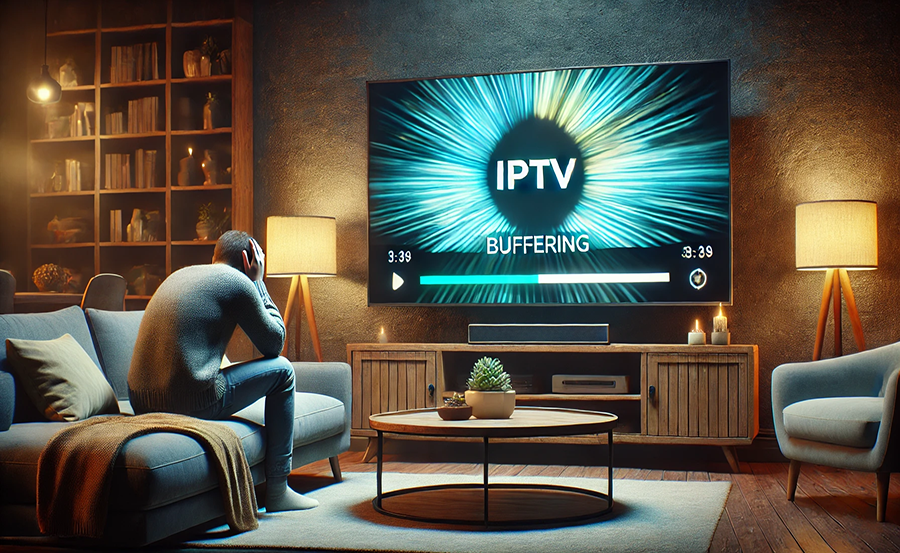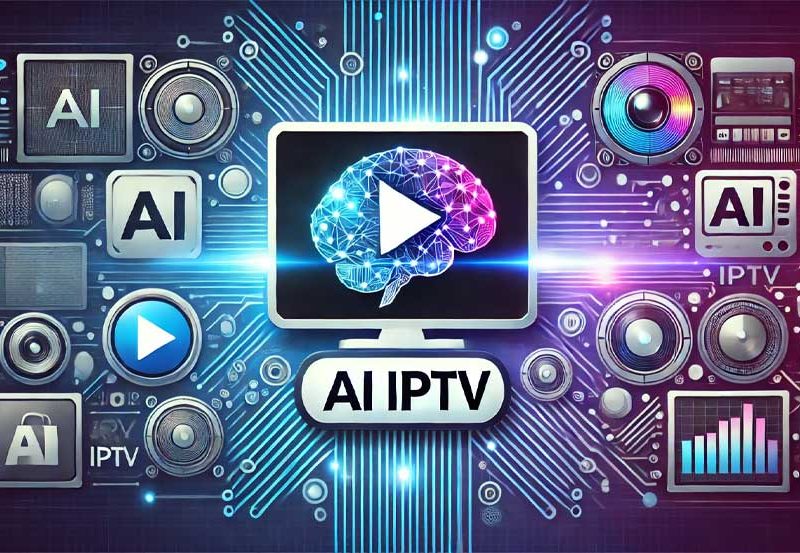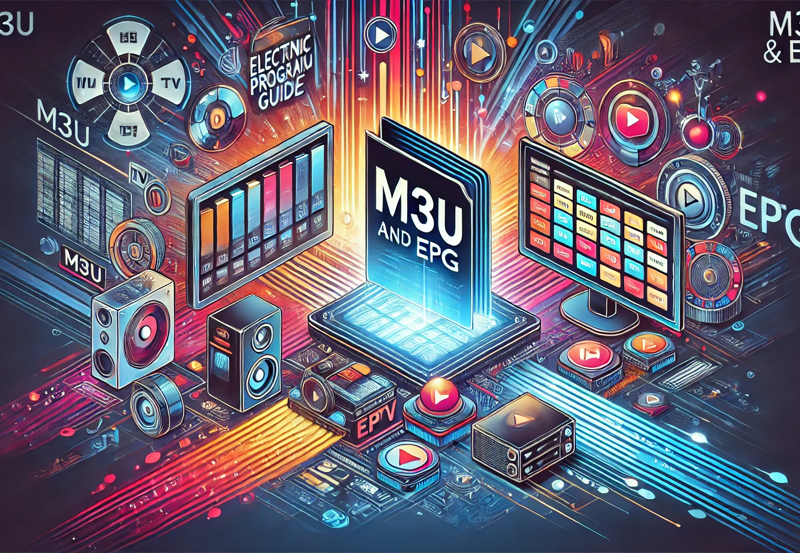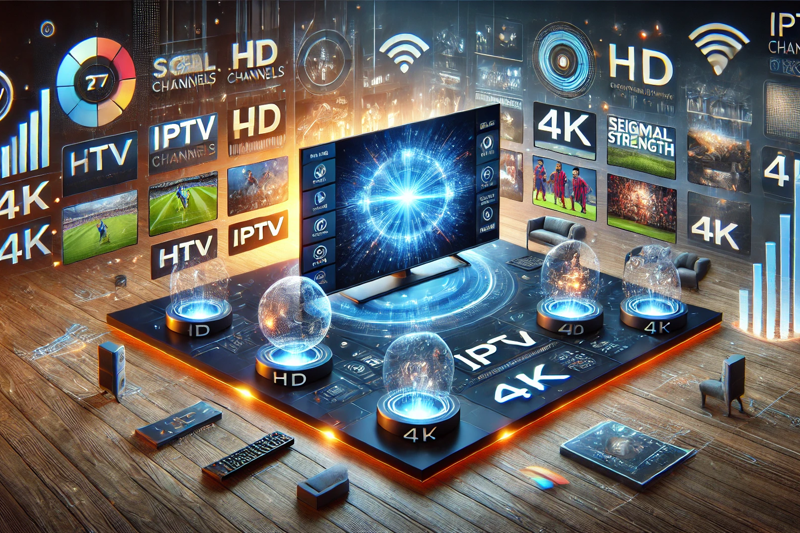In today’s fast-paced digital landscape, where entertainment is just a click away, experiencing interruptions like IPTV buffering can be frustrating. The pursuit of high-quality IPTV streaming is a journey that many embark on, looking to upgrade their TV experience today. Understanding how device compatibility plays a pivotal role could be the key to unlocking a seamless viewing experience. This article delves into how aligning your tech setup can alleviate those buffering woes.
Understanding the IPTV Buffering Problem
The allure of IPTV lies in its ability to offer an array of channels without the hefty price tag of traditional cable. Yet, when plagued by buffering, the experience can quickly go south. This section explores what causes IPTV buffering and why it’s crucial to address.
What is IPTV Buffering?
Buffering happens when your IPTV service experiences lag or delays in streaming data to your device. This interruption can stem from various sources, including network congestion, server issues, or device compatibility shortcomings. To truly enjoy the high-quality IPTV service you deserve, mitigating these interruptions becomes a priority.
Impact of Network Congestion
Network congestion is akin to a traffic jam on the internet highway, where too many users clog the available bandwidth. Such scenarios often lead to buffering, as the data cannot travel swiftly to your device. While upgrading your internet plan can help, device compatibility issues might still hamper the best IPTV experience.
Role of Device Compatibility in Experiencing IPTV
Device compatibility serves as the linchpin in ensuring smooth streaming. Here’s why the devices you use can drastically affect your IPTV experience.
The Importance of Compatible Devices
Not all devices are created equal when it comes to handling IPTV streams. Older or obsolete devices may lack the processing power or software support necessary for modern IPTV applications. Ensuring your device is up-to-date with current technology standards can greatly enhance viewing quality.
Software and Hardware Requirements
Successful IPTV streaming often requires devices with current operating systems and sufficient memory. Smart TVs, streaming boxes, and consoles that frequently update their software can more effectively process IPTV data, reducing buffering problems.
Steps to Enhance Device Compatibility
Enhancing device compatibility doesn’t necessarily require a complete overhaul of your tech suite. Sometimes, small tweaks can yield substantial improvements in reducing IPTV buffering.
Regular Software Updates
Keeping your device’s software up-to-date is fundamental. Manufacturers provide updates that not only introduce new features but also fix bugs and improve performance. Ensuring your devices are current minimizes technological bottlenecks that contribute to buffering.
Upgrading Low-performance Devices
If updates aren’t cutting it, it may be time to consider upgrading. Devices with older hardware may not have the capability to handle newer, data-heavy streams. Investing in a modern streaming device could markedly improve your IPTV experience.
Optimizing Your Network for IPTV
While device compatibility is critical, optimizing your network settings is equally important. Pairing an upgraded device with a well-configured network setup ensures the best IPTV experience.
Enhance Your Wi-Fi Environment
Improving your Wi-Fi environment can significantly affect streaming quality. To optimize, position your router centrally, minimize physical obstructions, and reduce interference from other electronic devices
Consider Ethernet Connections
Where possible, using a wired Ethernet connection can provide a more stable and faster internet connection than Wi-Fi. This direct line reduces potential interruptions and offers consistent high-quality IPTV streaming. Buy 1 Year IPTV Subscription and Enjoy Unlimited Content
Addressing Common Misconceptions about IPTV
Misunderstandings about IPTVs and buffering abound. Here’s clearing up some prevalent myths that might mislead users.
More Bandwidth Always Solves Buffering
While higher bandwidth can alleviate some issues, it’s not a catch-all solution. Device compatibility and network configuration play equally significant roles in experiencing interruptions. A balanced approach is necessary for optimal performance.
Smart TVs Always Have Built-in Solutions
Though Smart TVs come with advanced features, they are not immune to compatibility issues. Some IPTV apps may not be fully optimized for all TV operating systems, requiring additional devices or app alternatives for the best results.
Insights from Industry Experts
Expert advice can provide a pathway to improved viewing experiences. Here’s what leading professionals suggest about overcoming IPTV buffering through device compatibility.
Emphasize Testing and Trial
According to industry specialists, there’s no one-size-fits-all solution. Continuously testing different devices and configurations can help discern what works best for your environment.
Utilize Customer Support Channels
Reaching out to service providers or device manufacturers can provide specific insights into compatibility solutions. They can offer updates or alternative setting suggestions tailored to your situation.
The Future of IPTV and Device Compatibility
The world of IPTV isn’t static; it evolves with technological advancements. Looking ahead, device compatibility will continue playing a pivotal role in user satisfaction.
Emerging Technologies
With the rise of 5G technology, internet speeds will significantly improve, promising to reduce buffering further. Devices that will effectively harness these speeds will lead the way in providing the highest quality IPTV experiences.
Focus on Integration
We’re moving towards a future where integration isn’t just a feature but a necessity. Devices that seamlessly connect and enhance the use of each other will spearhead a buffer-free IPTV future.
Device Compatibility FAQs
For those still seeking answers, this section addresses common inquiries related to device compatibility and IPTV buffering.
What devices are best for IPTV streaming?
The most reliable devices for IPTV streaming include updated Smart TVs, modern streaming boxes, and gaming consoles with the latest software. Ensuring your chosen device meets current processing and memory standards is crucial.
Can using a VPN help reduce IPTV buffering?
A VPN can sometimes aid in reducing buffering by alleviating network congestion and bypassing ISP throttling. However, it’s not a guaranteed fix and should be part of broader troubleshooting efforts.
Is Wi-Fi or Ethernet better for IPTV?
Ethernet is generally better for IPTV because it provides a direct, stable connection that isn’t prone to the same interferences as Wi-Fi. However, modern mesh Wi-Fi systems can also provide excellent performance.
How often should I update my IPTV app?
Updating your IPTV app as soon as new updates are available is recommended. This ensures you benefit from performance improvements, bug fixes, and new features, contributing to a better streaming experience.
Can outdated devices still work with IPTV?
Outdated devices might still work but are more likely to experience compatibility issues that result in buffering. If updating the software doesn’t help, it might be time to consider upgrading the hardware.
Troubleshooting Common IPTV Issues on Android Boxes with Perfect Player





